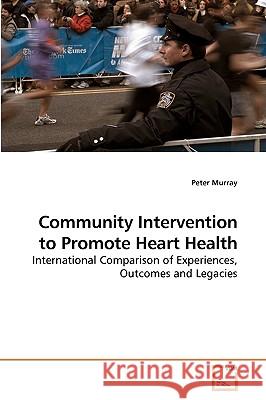Community Intervention to Promote Heart Health » książka
Community Intervention to Promote Heart Health
ISBN-13: 9783639204445 / Angielski / Miękka / 2009 / 228 str.
After the epidemiological transition heart disease became the most frequently recorded cause of death in the industrialised world. The risk of developing heart disease was shown by research to be related to how people live their everyday lives - principally to the type of diet they ate and drank, to whether or not they smoked tobacco and to the amount of exercise they took.These associations suggested that many premature deaths and episodes of serious illness could be prevented by changes in peoples everyday lifestyles and in the community norms that provided the social framework for individual members behaviour. As a result, the promotion of change in the major lifestyle-related risk factors through interventions targeted at whole communities became an internationally deployed health policy instrument in the 1970s and 1980s. This study analyses the experiences of mounting these interventions through a comparison of four countries: Finland, Ireland, the United Kingdom and the United States of America. It also explores the implications of these experiences for wider processes of health policy development.











